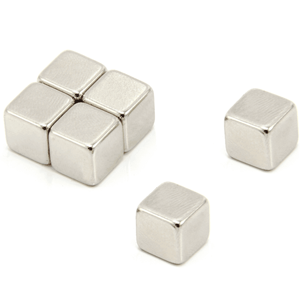There are several types of magnets on the market today and each type of different magnet have different strengths making them better suited for various applications. If you are new to the world of magnets, then finding the right magnet for your application can be a problem.
Lucky for you we are experts in the field of magnets, and we’ve outlined the main things you should consider when looking for the right magnet below.
1. How Will the Magnet Be Used?
The application in which the magnet will be used is the most important thing to consider. It’s important to know and understand the intended purpose of the magnet and why you’re using it.
2. Where Will the Magnet Be Used?
Consider the space your magnet will need to fit in. This will help you determine the basics such as height, width or diameter of the magnet you require, from this you will be able to determine the magnets shape.
As well as the size of the space you will be using the magnet don’t forget to consider other factors such as is the surface rough, flat, smooth, or porous? Will your magnets be used indoors or outdoors? Are there weight restrictions or requirements? Should your magnet have adhesive on one side?
3. What Type of Magnets Do You Need?
With several types of magnets available it’s important to pick the right material as each material has different properties and strengths. The most common magnets are neodymium, alnico, samarium cobalt, ferrite and flexible magnets.
Neodymium
Neodymium magnets are the strongest and most commonly used permanent magnets commercially available as they provide unparalleled levels of magnetism and resistance to demagnetisation.
Neodymium magnets are most commonly seen in electronic products such as mobile phones, earphones and hard drives as well as being used in multiple industries including medical science and renewable energy. At the same time, neodymium has good mechanical properties and can be easily processed into various shapes, including special-shaped magnets.
Alnico
Alnico magnets are composed of aluminium, nickel, cobalt, iron, and other trace metal elements and have high magnetic strength and a low resistance to being demagnetised and re-magnetised and are still commonly used in the manufacturing of sensors, guitar pickups, relays and high temperature handling equipment.
Samarium Cobalt
Samarium cobalt magnets are part of the rare-earth family of permanent magnets and whilst they aren’t as strong as neodymium magnets, they are more effective over a high range of temperatures and are more resistant to corrosion.
Samarium cobalt magnets can be used in a range of temperatures ranging from -273℃ up to 350℃ because of these characteristics samarium cobalt magnets are most commonly used in applications that require high operating temperatures such as generators, sensors and motors.
Ferrite
Ferrite magnets are permanent magnets that are hard and brittle and have lower magnetic energy compared to other permanent magnets. However, they are not easy to demagnetise or corrode and have an amazingly simple production process making them more cost-effective.
Therefore, they are extremely popular in industrial production and displaced alnico magnets as radio magnets in speakers.
Flexible Magnets
Flexible magnets are a type of permanent magnet that are bendable and can be cut into almost any shape or size, making them extremely versatile and ideal for creative applications from signage to fridge magnets and even business cards.
4. Making Your Decision
Having considered how, where and why you’ll be using a magnet as well as picking the most suitable type of magnet for your application, it’s now time for you to pick the right magnet for you!
If you’re still unsure or have a found a few suitable options then our team of experts are always happy to help you find the exact magnet for your application, get in touch today on 08455194701 or email sales@magnetexpert.com







